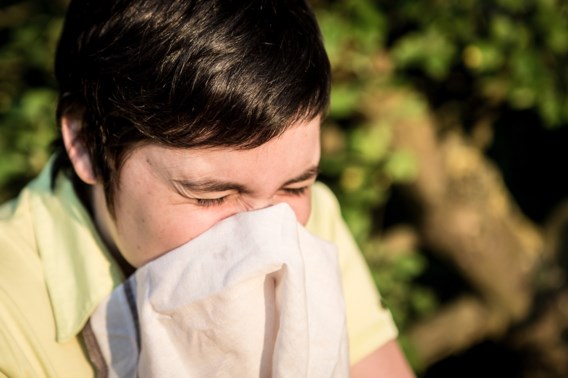This week has been a struggle for people who suffer from hay fever, as the weather conditions are currently very favorable to pollen dispersal in the air, and we find ourselves in a very high-risk period for hay fever.
On Thursday, almost double the number of grass pollens per m³ of air was measured in comparison with last year in Brussels: over 260 grass pollen grains per m³ of air were measured, in comparison with 2020's record of 160 per m³ of air, according to Sciensano.
"Typical allergy symptoms such as runny nose, cough, or shortness of breath (in case of asthma) can easily be mistaken for a cold, flu, or even a coronavirus infection," the Public Health Institute said.
The loss of sense of taste and smell can be symptoms both of hay fever and Covid-19, however, if your symptoms include a fever and body aches, this will indicate that you more likely have a viral infection, however, it is recommended to call your general practitioner in case of doubt.
During the allergy season last year, virologist Steven Van Gucht pointed out that symptoms of an allergy appear as soon as you are exposed to a certain amount of allergens, for example, when you go outside, "whilst with Covid-19, the symptoms usually persist even when you stay indoors."
What you can do to alleviate inconveniences
Grasses disperse their pollen into the air over a long period, generally from May to July/August, as hundreds of plant species make up the grass family, and they all have different flowering periods.
If you feel you may be a hay fever sufferer, it is always best to seek medical advice and follow the recommendations given by your doctor, however, there are some general tips that will help you get through the allergy season.
Regularly shower and wash your hair to get rid of the pollen residues. You can also clean your nose with physiological water.
Don't dry your linen outside as the pollen will get attached to clothing and other items.
Try to use paper handkerchiefs that can be thrown away, rather than cloth handkerchiefs, which again will attract more pollen to gather.
Avoid going outside when high levels of pollen are being measured (you can consult Sciensano's pollen station recordings here). Keep the windows closed when travelling by car.
If you do go outside, wearing sunglasses can help to avoid pollen coming in contact with your eyes. If possible, avoid mowing the lawn yourself.
People with hay fever who sneeze a lot, but still go outside, should try to wear a face mask to avoid spreading the droplets you excrete by sneezing.
Not just affecting humans
Around one in six people in Belgium suffer from hay fever, however, it turns out our pets can also suffer from grass pollen allergies.
A growing number of dogs and cats are suffering from hay fever during the past few years, vet Bart Vander Kuylen told Radio 2 Antwerp.
"While humans with hay fever sneeze or get red eyes, dogs and cats react quite differently. Dogs don’t sneeze, but start itching terribly," he said, as the allergic reaction doesn't manifest in the sinuses but on the skin.
Around this time of the year, a lot of samples are being sent from vets to the laboratory for allergy tests, which cost around €140, and the result often shows that the pet is allergic to grass pollen," he explained.
If you suspect your pet is suffering from hay fever, Vander Kuylen advises to visit your vet, as they will be able to minimise the animal's reaction to the pollen.

